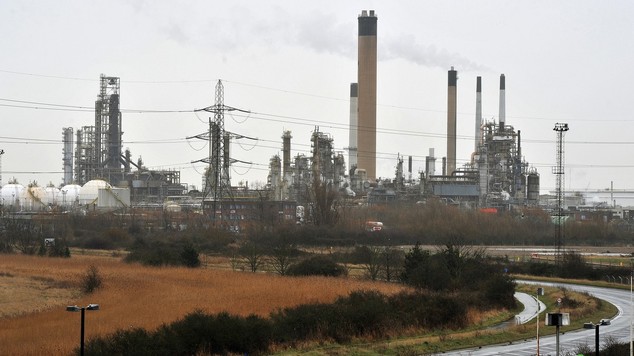Price of oil slips to five-year low
The price of oil continued its slide today after Brent crude dipped below 60 US dollars a barrel for the first time since 2009.
The energy industry benchmark is now down by about 50% since the summer amid concerns about weakening demand and oversupply.
With shares in oil majors including BP coming under fresh pressure, the FTSE 100 Index fell by another 0.5% to stand at a new low for the year.

Crude oil has dropped in price by 50% since the summer
London's top flight index saw £112 billion wiped from its value last week during its worst five-day period in more than three years.
As well as the plunging price of oil, investors have been spooked by the stagnation of Europe's economy and the faltering outlook in China.
Earlier today, Russia's central bank surprised markets by hiking the country's interest rate to 17% from 10.5% in an attempt to prop up the troubled rouble.
Falling oil prices and international sanctions have weighed on the currency, which lost 10% of its value yesterday in the biggest fall since the 1998 economic meltdown.
Bank of England governor Mark Carney said the fall in the oil price was a "net positive development" for the UK.
Presenting the Bank's financial stability report, he said: "We should be clear that the 40%-plus drop will flow quickly through to consumers and increase real disposable income and is a net positive for the UK economy."
Mr Carney warned that the fall in the oil price also presented some risks to financial stability.
He said: "Geopolitical risks could intensify. Inflation expectations could be further depressed in economies, such as the euro area, where core inflation is already weak, slowing nominal income growth and increasing the burdens of debts."
The rouble continued to fall today despite the sharp rates rise.
Mr Carney said the UK's direct exposure to Russia was "very modest", with exports prior to the introduction of sanctions accounting for about 1.5% of trade.








































































































































































































